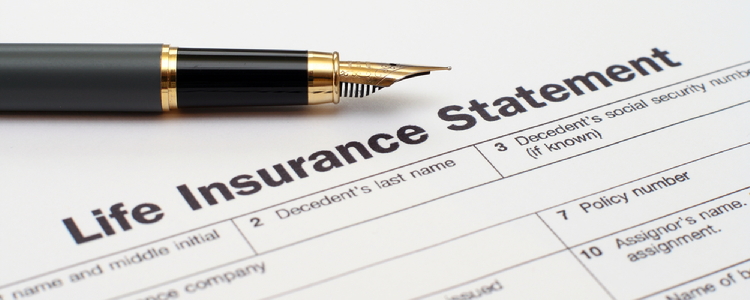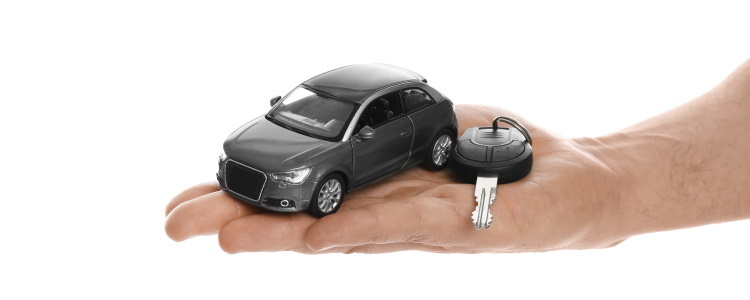Debt doesn’t go away after someone passes. If you or someone you know has lost a loved one, you may find yourself in a situation where you’ve inherited a car that still has a loan on it. Here’s what you need to know if you inherit a vehicle.
Taking On an Inherited Auto Loan
Death isn't easy to deal with, and many times unexpected questions and financial situations can pop up after someone is gone. This is especially true when someone passes unexpectedly – something many people have recently encountered since the rise of COVID19. When someone dies, any assets they had – including a home, land, or any vehicles – are added up into a combined total called an estate. If there's enough money in the estate, it can be used to pay off the remaining debts of the deceased, but debts are not automatically forgiven and wiped away after someone passes.
It’s also possible that a person's debts, such as auto loans, can be passed on to someone else. If you inherited a vehicle that still has a loan on it, you typically have two options moving forward:
- Accept the debt and continue making payments on the loan.
- Do not accept the car loan and let the lender repossess the vehicle.
If the deceased person has a will that says you are to take over the vehicle and ownership, then typically, the court transfers ownership for you automatically. If they didn’t have a will the estate usually goes to probate, and you need to contact the probate court to see if you’re allowed to register the vehicle in your name and assume the loan.
ACE Tip: Keep in mind that any financed vehicle must have full coverage auto insurance, so before you accept the inherited car loan, make sure you can afford the payments and the cost of auto insurance.
Do I Have to Repay the Auto Loan?
If you’re not the deceased person’s spouse, cosigner, or co-borrower on the loan, you're most likely not responsible for repaying the car loan unless you inherited it and accepted responsibility for repaying the loan.
The situation changes if you were a co-borrower or cosigner on the loan, though.
Co-Borrower or Cosigned on Passed Person’s Auto Loan
If you and the deceased person were co-borrowers on the loan, then you’re responsible for the balance and still own the vehicle, unless it's left to someone else through a will. If you can’t afford it, then it may be worth it to consider refinancing to make the payments more manageable.
If refinancing isn’t an option, then voluntarily surrendering the vehicle may be something to consider. Your credit score does take a hefty hit after a repossession – voluntary or not. However, if you decide to turn over the vehicle you’re only responsible for the deficiency balance if it’s sold at auction, and not all the associated repossession costs.
As a cosigner on the loan, you’re obligated to repay it. A cosigner is contractually obligated to repay an auto loan balance if the primary borrower is unable to. However, depending on the state you live in, the lender may be required to seek payment through the estate first. Best case scenario: you're no longer responsible for the loan. The worst case scenario as a cosigner is that you end up being responsible for the loan, even if someone else inherits the car.
Community Property and Auto Loans After Death
 In nine states, called community property states, auto loans along with any other large purchases made while married, are considered community property. These nine community property states are Arizona, California, Idaho, Louisiana, Nevada, New Mexico, Texas, Washington, and Wisconsin.
In nine states, called community property states, auto loans along with any other large purchases made while married, are considered community property. These nine community property states are Arizona, California, Idaho, Louisiana, Nevada, New Mexico, Texas, Washington, and Wisconsin.
In these states, the spouse is responsible for half of the remaining debt of the deceased – even if they were never on the title to that property.
This means that if your spouse passes and you live in a community property state, you’re obligated to pay half of the remaining auto loan balance regardless of if you're on the title or not.
What Can I Do With the Inherited Vehicle?
If you decide to accept the auto loan, you don’t necessarily have to keep the vehicle. Once it’s registered in your name, it becomes your asset and you can continue paying on the loan and keep the car or use it as a trade-in for something else.
You can also look up the car’s value and compare it to the loan balance to determine its equity position. If the vehicle is worth more than the loan balance, that difference is equity which can be helpful when you trade it in. Trade-in equity can be used to lower the selling price of your next car purchase.
Need Dealer Connections?
When you inherit a car with a loan and you don’t want to keep the vehicle, you could trade it in for another one and use its equity to put money down on your next purchase. If your credit score isn’t great, you may need the help of a bad credit auto lender to get an auto loan approval, and those resources can be hard to come by. We want to make it a little easier to find bad credit connections, here at Auto Credit Express.
We’ve created a network of special finance dealerships that are equipped to help borrowers in many different and unique credit situations. To get matched to a dealer in your local area, fill out our free auto loan request form and we’ll get right to work.
















